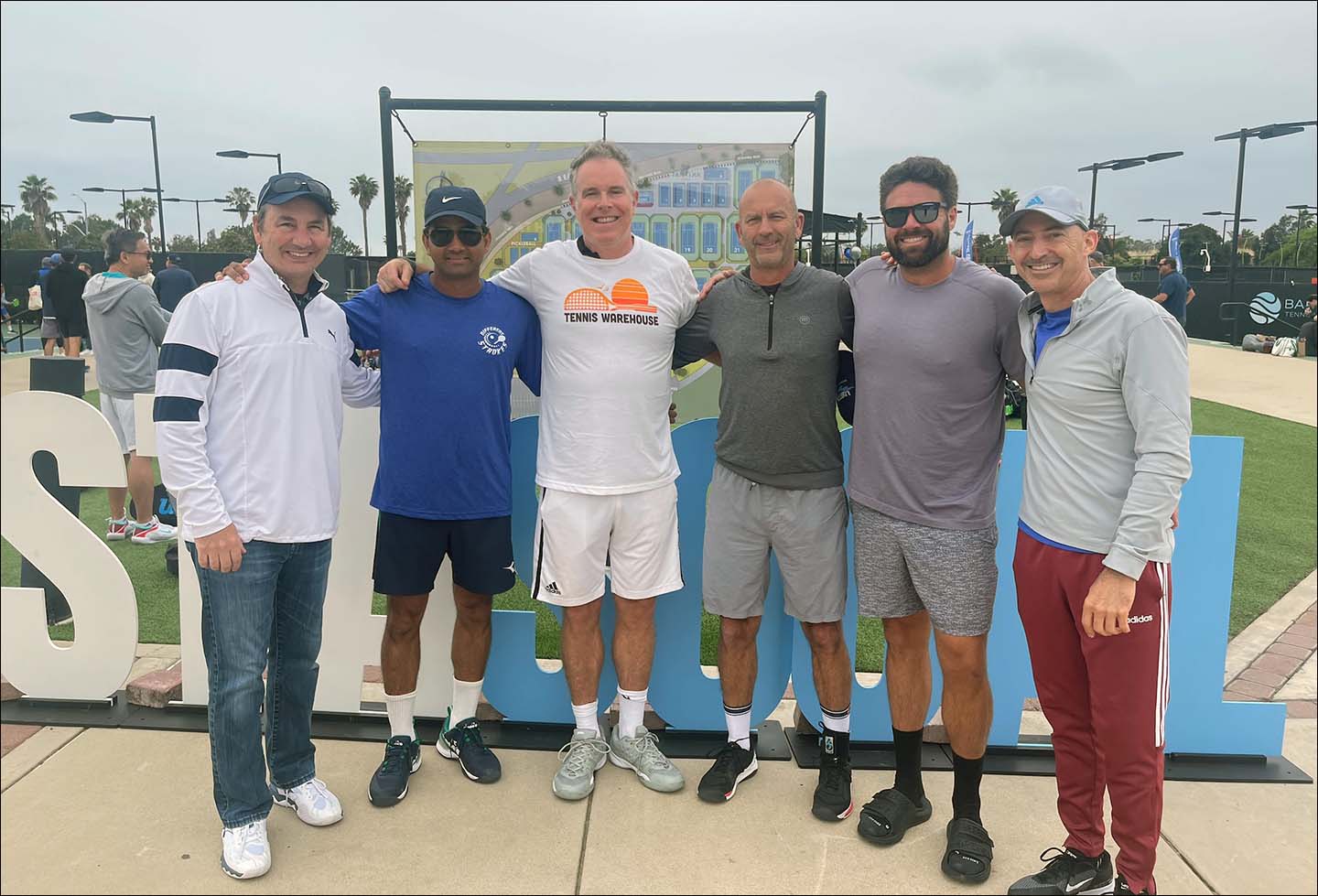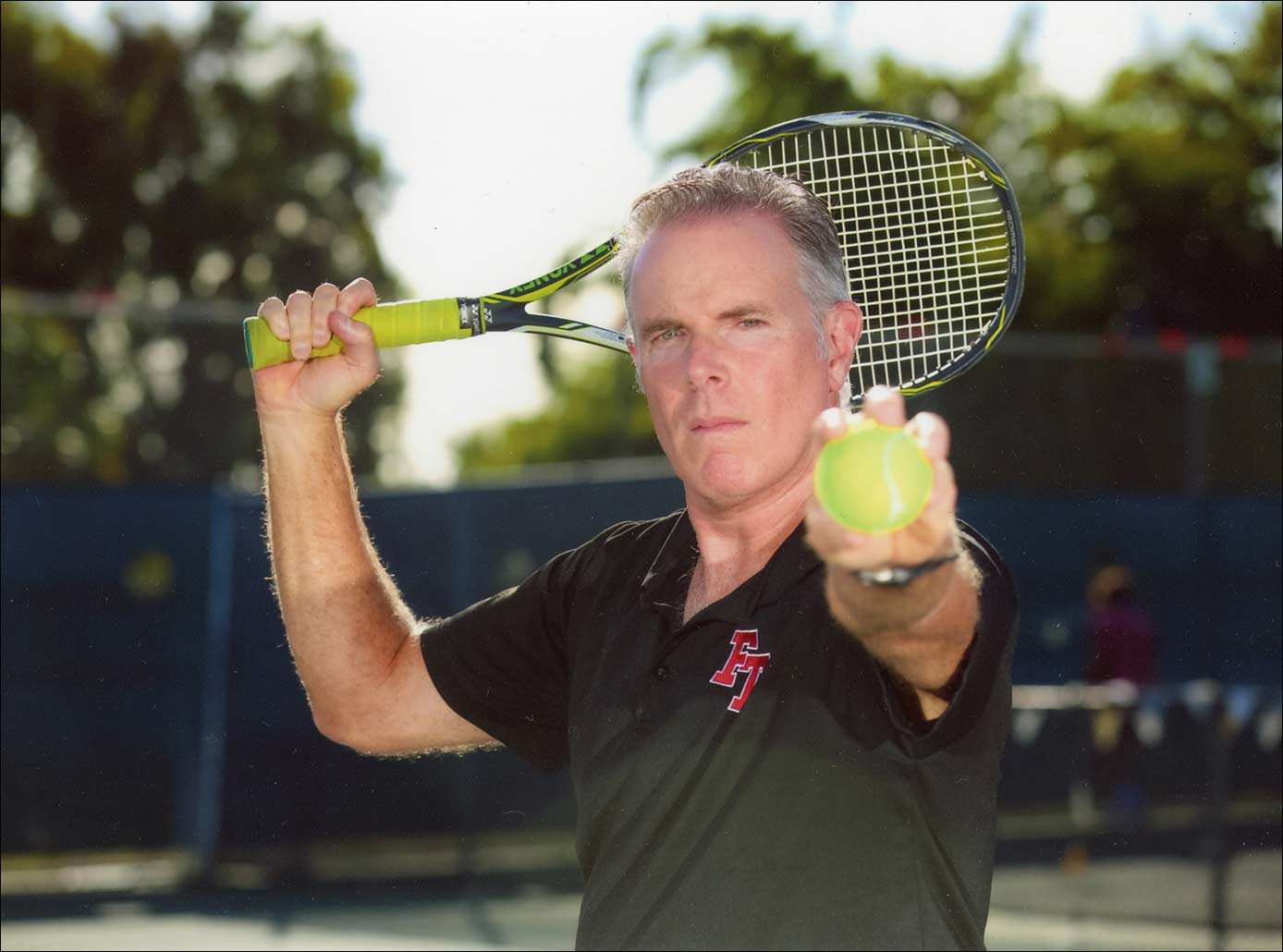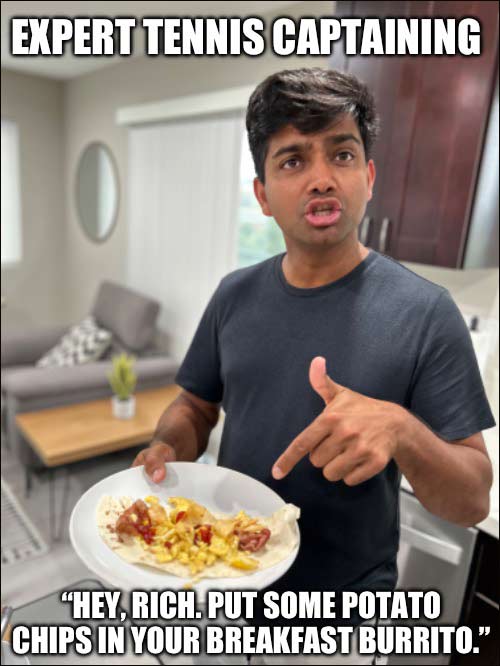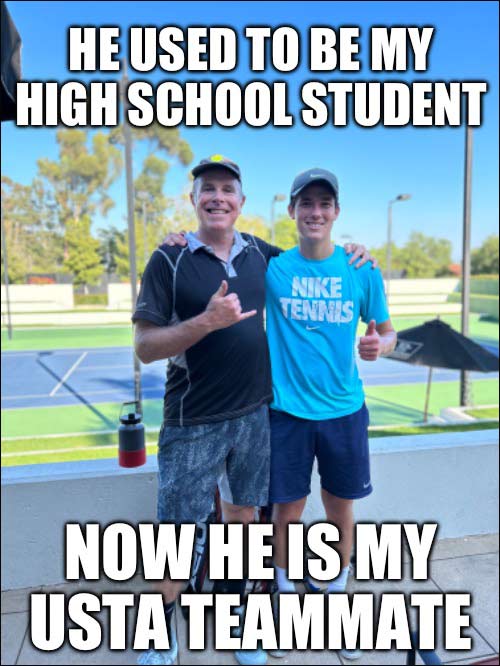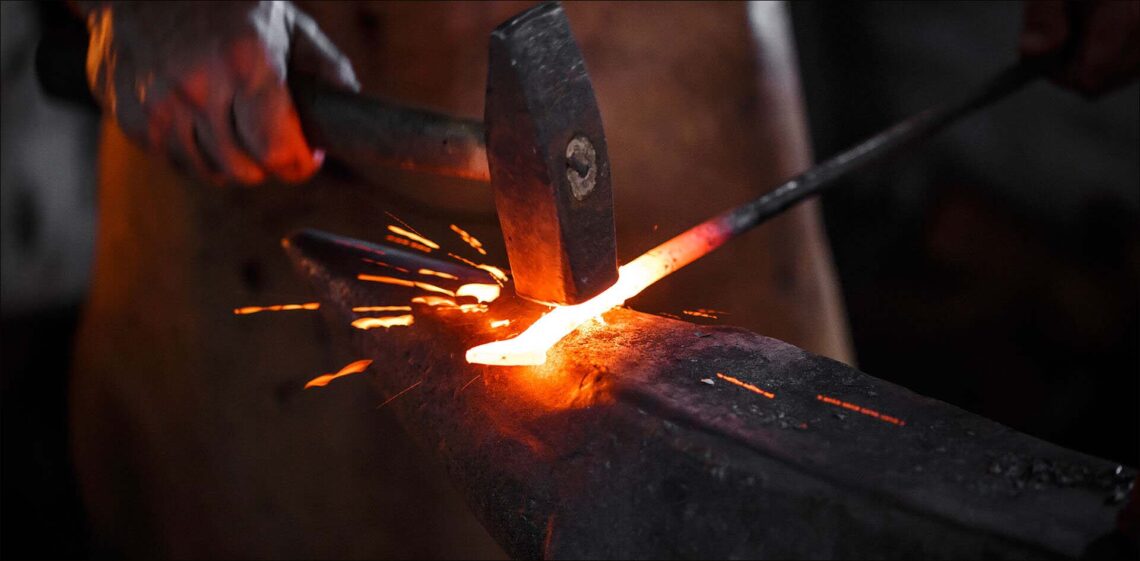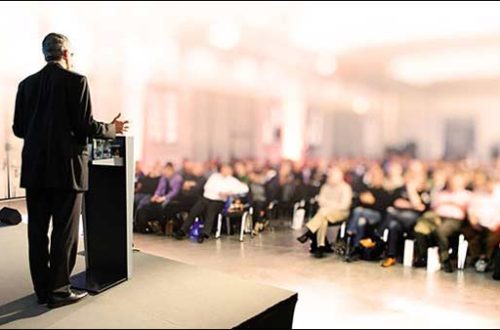I came across this giant sign along the walls of a martial arts dojang last spring, and I was so taken aback by it that I snapped this quick photo:
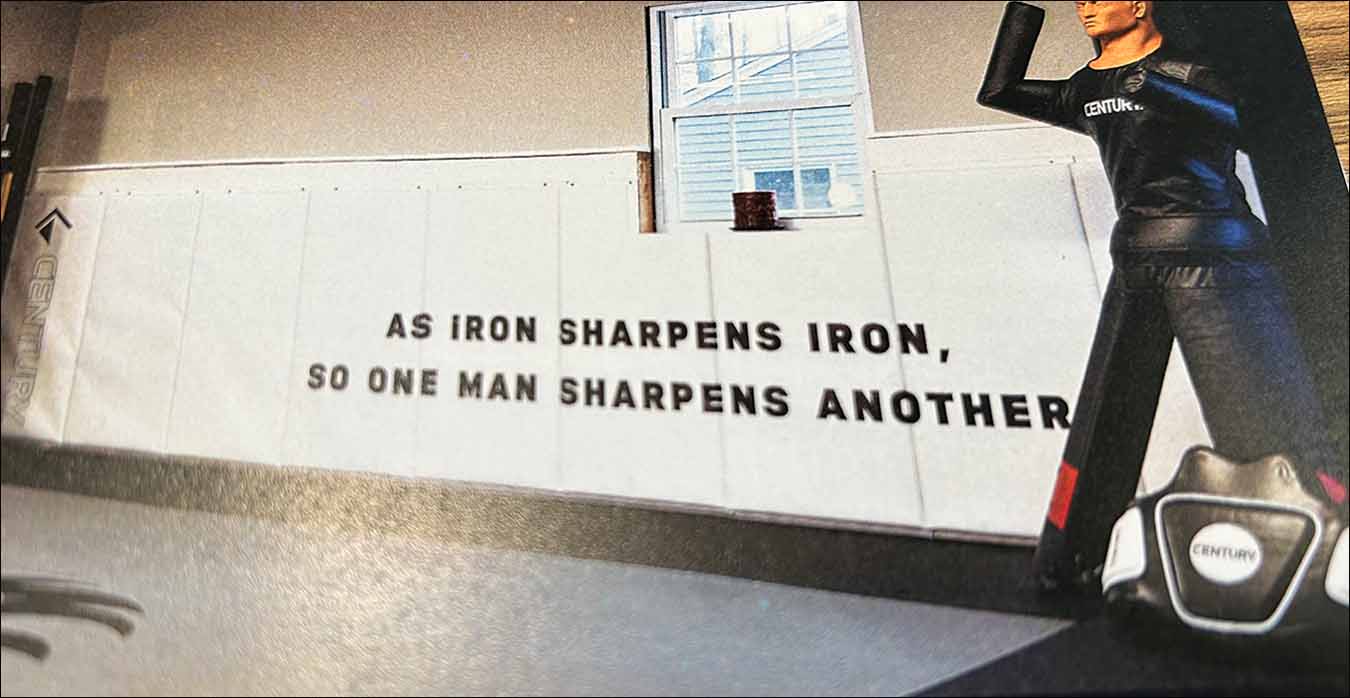
I was impressed by the message on the sign, but I am not sure if the impression was positive or negative. Is iron clashing against iron making a metal stronger? Is that what I want in my life? Or not? What exactly do I think of this analogy?
I was unsure. I am still unsure. This essay is the product of my thinking on the subject.
I did some further research and discovered this was a Bible quote. The full passage from Proverbs 27:17 goes like this:
“He that blesseth his friend with a loud voice, rising early in the morning, it shall be counted a curse to him. A continual dropping in a very rainy day and a contentious woman are alike. Whosoever hideth her hideth the wind, and the ointment of his right hand, which bewrayeth itself. Iron sharpeneth iron; so a man sharpeneth the countenance of his friend. Whoso keepeth the fig tree shall eat the fruit thereof: so he that waiteth on his master shall be honoured. As in water face answereth to face, so the heart of man to man. Hell and destruction are never full; so the eyes of man are never satisfied.”
What does that quote about iron mean in context?
Well, the common interpretation, as I saw through a quick Google search, is that friends bring out the best in friends in terms of questioning and challenging each other and thereby improving them in the process. In terms of faith, the passage suggests that people can help each other grow and improve through their rigorous interactions in important conversations about faith and character. I tell my students that if you want to see who you are, you should look at your five closest friends – and the amalgamation of them is who you are. “Dime con quién andas, y te diré quién eres.”
I get that. But as I get older, I have come to see it differently. The idea that conflict and confrontation makes a person sharper and better is dubious, in my opinion. Even in a community where there is trust and friendship, maybe a person needs support and encouragement more than friction and sparks – “iron sharpening iron.”
I suspect adults coming into confrontation with each other can get negative pretty quickly. Grown men going toe-to-toe, for example, can get ugly. Lives can be lost, and they are. I spoke at length about this in terms of “when two tigers clash, one is killed and the other is maimed.” That is so true! And is that worth it? It just reminds me how for so many “ego is the enemy,” and to remind myself not to get myself shanghaied into unnecessary conflict. There always seem to be a handful of difficult people at work or in my social circles always getting into it with others. It seemingly cannot be avoided.
Some people are attracted to conflict and confrontation. Franklin Roosevelt almost bragged, “I ask you to judge me by the enemies I have made.” Or there is this old saying: “Beware of getting into a fight. But once in it let your opponent beware of you.” It might be good advice but not the best, as Abraham Lincoln argued. He went on to explain further:
“Quarrel not at all. No man resolved to make the most of himself can spare time for personal contention. Still less can he afford to take all the consequences, including the vitiating of his temper and loss of self control. Yield larger things to which you can show no more than equal right; and yield lesser ones, though clearly your own. Better give your path to a dog than be bitten by him in contesting for the right. Even killing the dog would not cure the bite.“
As Lincoln’s whole life shows, pick your fights carefully. Fight only when it cannot be avoided. Then when the fight is necessary – even unavoidable – do what you need to do. And even then “ego is the enemy,” as is almost always the case, which leads to unnecessary and needless conflict. Why did Lincoln fire McClellan and keep Stanton on a short leash? Doris Kearns Goodwin’s whole book “Team of Rivals” shows how Abraham Lincoln was able to control his cabinet through wiles, intelligence, and patience. He kept his ego in check. His way was not steamrolling people, unless that was unavoidable. Like Lincoln, I have been by temperament “conflict avoidant.”
But I digress.
When I saw that sign in the martial arts studio last spring, it reminded me of my own competitive tennis activity in the last year. I have had a couple of tense, tight tennis matches which were no fun, and I don’t think they made me a better tennis player. Iron clashed with iron, and it just seemed to make a mess and leave an unpleasant smell in the air. Let me explain.
At the Barnes Tennis Center last spring I played a doubles match at the Southern California sectionals competitions against a team from Manhattan Beach. They were solid tennis players, and the match could have gone either way. We took the first set, but they went way up in the second set. My partner and I clawed our way back, but then they broke us at 4-5 and took the set. So it would go to a supertiebreaker for everything, with some 50 spectators from our club and theirs watching: that is pressure. (This would be interesting: how does a person play tennis under pressure?) Early on one of our opponents hit a ball right at me from close up, and I grunted as the ball flew at me and managed to hit a reflex volley. The ball was back on my opponent almost immediately, and he missed the volley. He complained loudly that my grunt was “hindrance,” and his team should be awarded the point. There just happened to be a USTA umpire right there watching, and he did not think it was hindrance.
But he did think it was dangerous and unsportsmanlike conduct when my enraged opponent hit a tennis ball right by me in anger. “Point penalty,” he proclaimed. And now the other guy was livid with anger and jumping around screaming. “We don’t want it,” I told the USTA umpire, and my partner concurred. “Let’s play it straight up. We don‘t want the penalty point. Let’s play.” The non-enraged player on the other team wisely got the other guy to cool down. He said “thank you for not taking the penalty point,” and we continued to play. We failed to convert on two match points in the supertiebreaker, as the opposition played well. I served and volleyed on one and the angry guy on the other team hit a perfect lob. I clapped for him as the ball sailed over my head; it was a great lob. They also had one match point where they served and poached – very smart – but I managed to chip the ball barely by the net guy, and his partner was not there because he had poached: a match point saved by us. A bit lucky for us. And then on our third match point they hit a lob which dropped short and I hit an easy overhead. We had won the supertiebreaker 11-9. The match could have gone either way. It was very close.
When it comes to a supertiebreaker under serious pressure, it usually is the team which is more “mentally tough” that wins. I like my odds in such a situation, as I can be cool as a cucumber under pressure, and so I look forward to supertiebreakers. It is not the better team who necessarily wins. It is the one who plays better in a handful of important points. I have won several supertiebreakers against teams I could not win an entire set against; they were the better team, but I could steal the match away in a handful of points. It is about nerves. It is about grace under pressure. That is important both on the playing field and off. More so off the field. Think about an important presentation in front of your bosses. Or a crucial job interview. There is a lot at stake and it’s “time to deliver.” A person gets better at this with practice.
After this sectionals match was over the head USTA umpire for the whole weekend came to get my version of events. I told him, “I am in my fifties. This is tennis we play for fun. We did not want the drama. We did not want the penalty point. We wanted to play the supertiebreaker straight up and win it or lose it there.” The referee told me that in the future I would not have the option of declining a penalty point, as it was a matter of player safety when one hits a ball near another in anger. After the umpire left that jackass from the other team came up and got into my ear again. “Blah blah blah!” he complained. I put my hand up to stop him, “Dude, you enjoy the rest of your weekend.” Then I left. That guy proceeded to get into it with almost the nicest guy on my team and his wife after I left. Whatever.
I really did not care all that much if I won that match or not. Don’t get me wrong: I wanted to win, and I gave it my best effort. I owed that much to my partner, myself, and my team. My opponents also deserved my best effort: iron sharpens iron. Quality opposition can bring out one’s best qualities, or at least it should. Bjorn Borg brought out the best in John McEnroe, and Roger Federer brought the best out in Rafael Nadal. They WANTED to play each other; they NEEDED their rival. That was the only way they could conjure their best tennis: the one made the other better. When their rival retired, they were distraught. I wrote about a wonderful experience against very solid competition that was almost a peak moment for me. I crave such competitive rivalry, as it really does make you better. Nevertheless, friendly competition too often turns into angry animosity. Initially I did not really care if I won or not that sectionals doubles match at the Barnes Tennis Center in San Diego, but walking away from that blowhard barking in my ear I thought to myself, “Well, now I am glad we won, you dickhead.”
And it kind of ruined the weekend for me. I don’t generally enjoy contention. I am conflict avoidant.
A month later I had a somewhat similar match. Our opponents again were strong players and pushed us around in the first set. But we took the second set, and now it was up to a super tiebreaker again. One player on that other team was a sort of difficult guy, and I am not the first to find him unpleasant on the tennis court. And yet that player missed a few crucial shots in the all-important tiebreaker. Then he unceremoniously double faulted on match point to lose the match. Ouch! You could hear the trunk of his car slam as he stormed away, threw his rackets into his vehicle, and drove off. He would not be sharing a beer with us after the match, as is the custom.
So it goes.
If the match is going to be contentious and angry, I am uninterested. That is how I have come to see it. In contrast, I look forward to a match against equal or better opponents if there is sportsmanship and a friendly vibe involved. It is totally possible to compete all-out without being an asshole. Most tennis players are good sportsmen, and my experience is that the better players almost always exhibit good sportsmanship. The number of “difficult persons” is few. The same is true at work. And in society at large.
But the “difficult people” seem to soak up so much of our time and attention. And in the age of social media and Donald Trump, the “difficult people” seem to take up most of the oxygen in the room, unfortunately; they get attention by being difficult and loud, that is the point. Every time I hear some lady say to me she is “difficult but worth it,” I wonder what is so great about her that makes the “difficulty” worth it? Would there be some other woman who is as great but just easier to get along with?
To be fair, it is true ideally that “iron sharpens iron.” If you surround yourself with quality people who will hold you to high principles and help bring out your best, that would be great. Hard metals can help to sharpen other metals, like a knife which when wetted is sharper and more serviceable than ever. But the metaphor is inexact. Human beings are not metal, and the collision of iron-on-iron will damage soft human flesh.
So here are the questions foremost in my mind: Do I want to clash with other “iron” personalities on the tennis court? Or in the dojang? Or anywhere? Mano-a-mano combat? Is the combustible collision of two strong elements – with sparks and flames, and shrieking noise – worth the noise and bustle? Am I interested in this? Do I want it in my life? I have mixed feelings, obviously.
So I return to the original Bible quote:
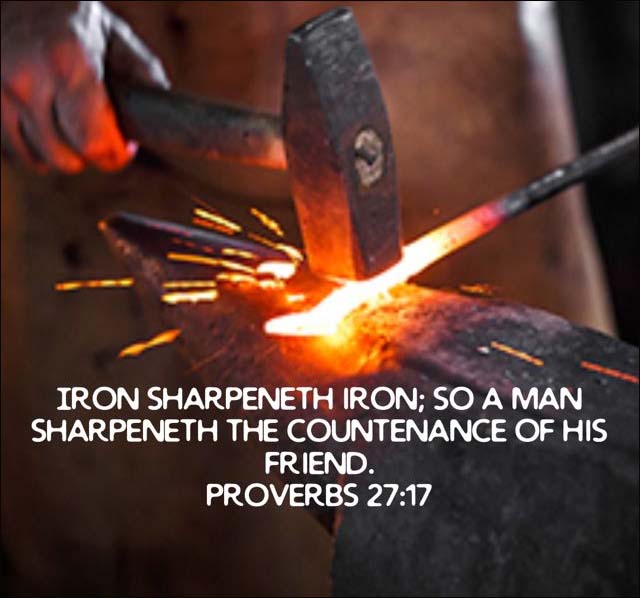
Do I want to be “sharpened”? Do I want to pass through the crucible and be transformed? Supposedly for the better?
Or to put it in more concrete terms, do I look forward next season to playing tense, edgy tennis matches which begin to resemble scorched-earth military campaigns?
No, I do not.
And I don’t look forward to “sharpening” my friends through challenging and confronting them either. I hope I do care enough for them that I might be candid and honest enough to confront them, if that were important. In extreme cases, it might become necessary. But my friends don’t need judgment or confrontation from me, not really. They need my support. They need my friendship. They need me to show up for them. They generally don’t need my criticism. So I would be most careful in deigning to “sharpen” them via conflict, even if it were well-meaning from a friend. I would tread very lightly.
There have been plenty of political activists in the past ten years who have been highly confrontational and ultra judgmental in denouncing others. They have done more harm than good, in my experience. “You get more flies with honey than with vinegar,” Ben Franklin observed. He was right.
Or maybe I am just showing my age. Or an avoidant temperament.
I seek peace. Not a fight.
Harmony. Not dissension.
I do want a challenge which will help me to conjure up the best I have both on the tennis court and off. I do believe one should sweat profusely in training so as to avoid bleeding to death in combat, as the military preaches. I want to practice tennis in 105 degree heat, so next time it is 90 degrees out I’m ready. I like that; I seek it out. I don’t want to compromise my standards or lessen the challenge. I do want my best possible performance. I enjoy hard training. I have an edge and I want to And I want friends who want to train hard with me. In that spirit, I believe in the Proverbs quote from the Bible.
At the same time, the context really matters. What is “clashing”? Who is trying to “sharpen” who? Why? What does that look like? Is there any collateral damage? Or not? Is it worth it? Why? Why not?
I apologize for the length of this essay, dear reader.
This argument has been raging in my head ever since I came across that quote five months ago. Reading a good essay should be just like overhearing a conversation another person is having in their head. So I hope it is here.
Like in so many other instances, I dwell here on some complicated question which has no easy answer. So I end up having no clear plan of action afterwards.
It is all confusing and complicated. Very little black or white, but endless shades of gray. Maybe it is as I often say to my students: “Confusion is an advanced form of understanding.” And maybe sometimes there is no clear, simple answer to a complicated problem.
Strike that – there is almost always no clear, simple answer which will solve a complicated problem.
Or as I sometimes conclude, “There are no ‘solutions.’ There are only trade-offs.” Most of the time that is true.
Or maybe there are problems which have no solutions – period.
